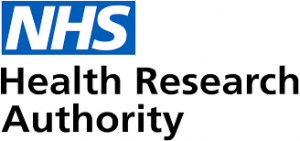What is the significance of the Statement of Activities and Schedule of Events?
When the Health Research Authority (HRA) approval process was introduced in March 2016, the Statement of Activities (SoA) and Schedule of Events (SoE) documents were made mandatory for non-commercial studies – those initiated and managed by non-commercial organisations such as Universities, NHS Trusts, charities etc.
The two documents must be submitted alongside your study documents when seeking NHS Research Ethics Committee approval, and the approval of the HRA, as the ‘umbrella organisation’.
With the introduction of the new General Data Protection Regulations, the HRA and HCRW have amended the two documents. They may be found here.
Who is ‘HCRW’?
HCRW stands for Health and Care Research Wales, and they have recently aligned its processes and paperwork with the HRA’s, so as to streamline and make consistent the research application process within England and Wales. Until recently the HRA was the umbrella organisation in England only, and a separate process was required if you wished to include research sites in Wales, Scotland, and Ireland*.
*If you wish to include sites from Scotland and Ireland, then the ‘old process’ is still to be followed. Contact Research Ethics for guidance.
What do I need to do?
If you are currently awaiting your approvals from the REC and HRA/HCRW, you do not need to do anything unless otherwise instructed by the HRA/HCRW. If you are concerned please get in touch with your HRA assessor, or their queries line.
If you are simply thinking of introducing your research into the NHS, are at your beginning stages, or you are currently compiling your study documents, then please remember to use the new versions of the SoA and SoE.
Please get in touch with Research Ethics for guidance on any aspects of clinical research, guidance, and if not already obtained, to request sponsorship of your study. Guidance and useful documents may also be found on the Clinical Governance blog.















 New weight change BU paper
New weight change BU paper One week to go! | The 16th Annual Postgraduate Research Conference
One week to go! | The 16th Annual Postgraduate Research Conference Geography and Environmental Studies academics – would you like to get more involved in preparing our next REF submission?
Geography and Environmental Studies academics – would you like to get more involved in preparing our next REF submission? Congratulations to three former BU staff
Congratulations to three former BU staff MSCA Staff Exchanges 2024 Call – internal deadline
MSCA Staff Exchanges 2024 Call – internal deadline Applications are now open for 2025 ESRC Postdoctoral Fellowships!
Applications are now open for 2025 ESRC Postdoctoral Fellowships! Horizon Europe – ERC CoG and MSCA SE webinars
Horizon Europe – ERC CoG and MSCA SE webinars MaGMap: Mass Grave Mapping
MaGMap: Mass Grave Mapping ERC grants – series of webinars
ERC grants – series of webinars